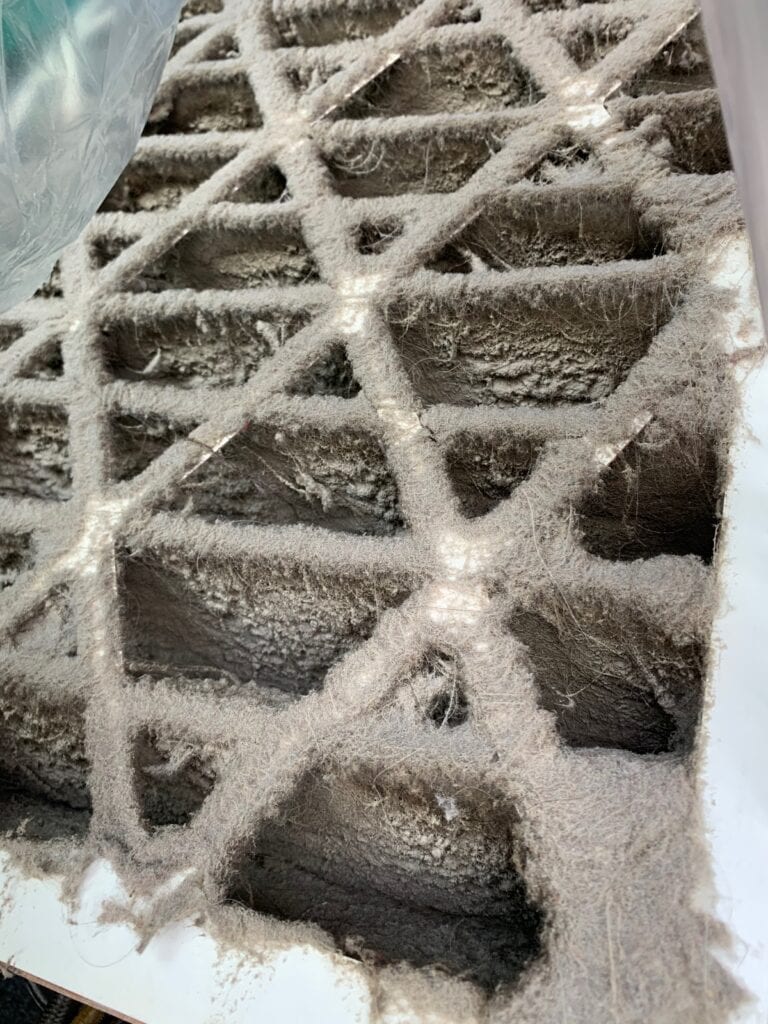Why is my air conditioner freezing?
If your system is iced up the first thing you should do is
TURN YOUR UNIT OFF

Nothing feels better than ice cold air coming out of your vents on a sweltering day, but finding ice or frost in your system is not a good sign. When your air conditioner is freezing up, it cannot properly cool your place. An iced up air conditioner causes stress and strain on your equipment and can cause water damage to your walls and ceiling. If you don’t do something about it quickly, you can end up with expensive emergency AC repairs.
There are a many possible causes, but the most common are:
- a refrigerant leak
- restricted airflow, perhaps because of a clogged filter or a broken fan
- a clog or obstruction in the drain line
- a faulty thermostat.
These issues can be easily addressed if you catch it in time. However, if you ignore an air conditioner that’s freezing up for too long, the strain on the system can lead to compressor failure. That’s a very steep repair cost, and often times it means you may need to replace your air conditioner.
What to do if your air conditioner is frozen up?
TURN IT OFF.
The first thing you should do when you find frost or ice building up on your AC unit is to immediately turn the unit off. Don’t turn up the temperature on your thermostat. Keeping the unit running will only exacerbate the problem – the longer it runs the more likely you’ll have compressor failure.
Next, you need to allow time for the ice to melt. Although this may not be recommended if your unit is situated in a way that water dripping from the ice might cause damage to your walls or ceiling. An HVAC professional can properly remove the ice without causing collateral damage.
IMPORTANT: Never use a sharp object to try to chip away the ice, which can cause damage to your air conditioner’s sensitive coil fins!
If you want to unfreeze your system on your own, you can try some of these methods:
- Turn your thermostat to the FAN setting to melt the ice. Don’t do this if there is ice on your fan.
- Try melting the ice with a blow dryer, but make sure the water is dripping into the drain pan.
- If water is dripping outside of your unit, immediately clean it up with a wet vac.
When to call a professional?
While your unit is slowly unfreezing, go take a look at your air filter. If the filter is heavily clogged then that might be the cause of the build up. Your AC needs warm air flowing over the coils to work properly. A clogged filter restricts air flow, and can result in the AC unit freezing up. Changing out the filter might be all you need to do to solve your problem.
If your filter is not the problem, then it’s time to call an HVAC professional to diagnose your system.
A professional may uncover that your system may be freezing up due to:
- a refrigerant leak – which causes low pressure in your lines and coils that leads to ice building up
- a fan problem – which keeps warm air from blowing over your coils
- a thermostat issue – which doesn’t send the proper signals to turn your system off.
If you’re needing to regularly add refrigerant to your system that means it has sprung a leak. Your AC is a closed system, which means unless there’s a leak you shouldn’t need to add more refrigerant.
R-22 (Freon) Refrigerant Alert
If you have a system installed prior to 2010, then it may be using R-22 refrigerant (also know as Freon). R-22 is being phased out by the EPA as of January 2020 and is becoming more expensive to obtain. Which means your repairs will be more costly. It may be more advisable to replace your air conditioner than making repairs.
Preventative Maintenance: be proactive instead of reactive
Many of these causes are preventable. By being proactive you can prevent small problems from becoming bigger ones. Having your system inspected, cleaned and tuned up can prevent airflow issues and even refrigerant leaks by keeping the coils clean and corrosion-free. An ounce of prevention costs much less than emergency repairs.
Talk to an Evolution Air Comfort Expert about our Preventative Maintenance Program.
